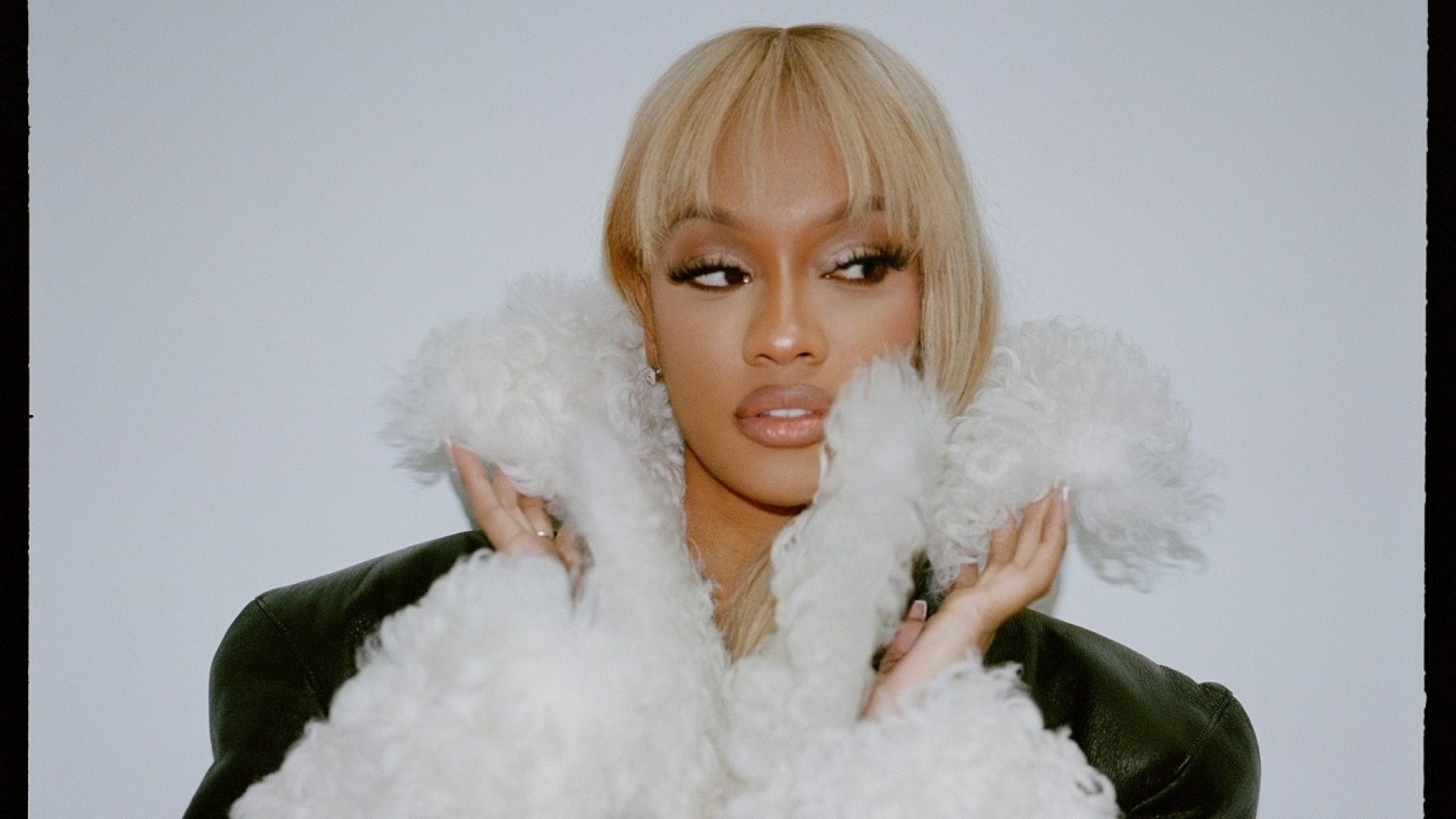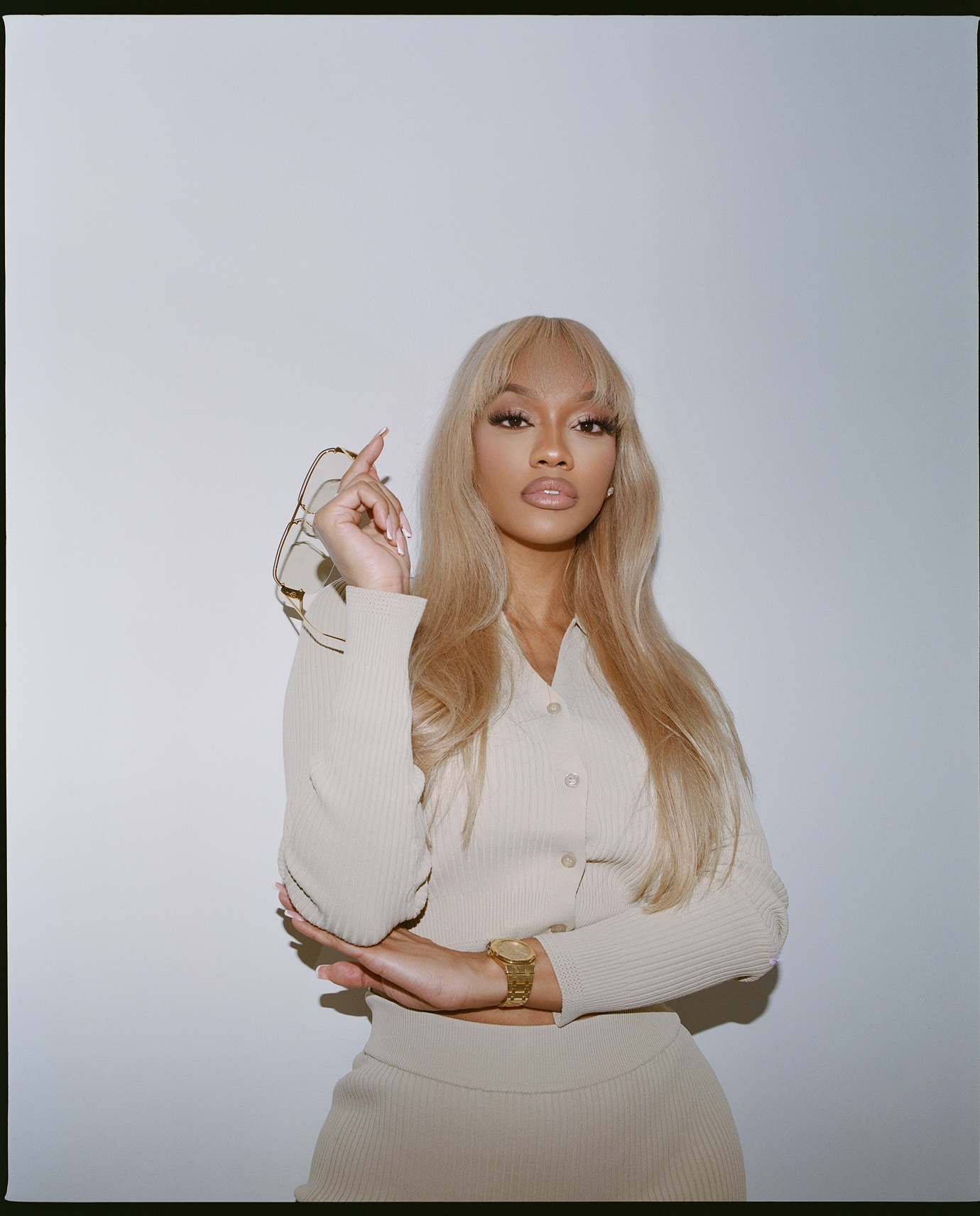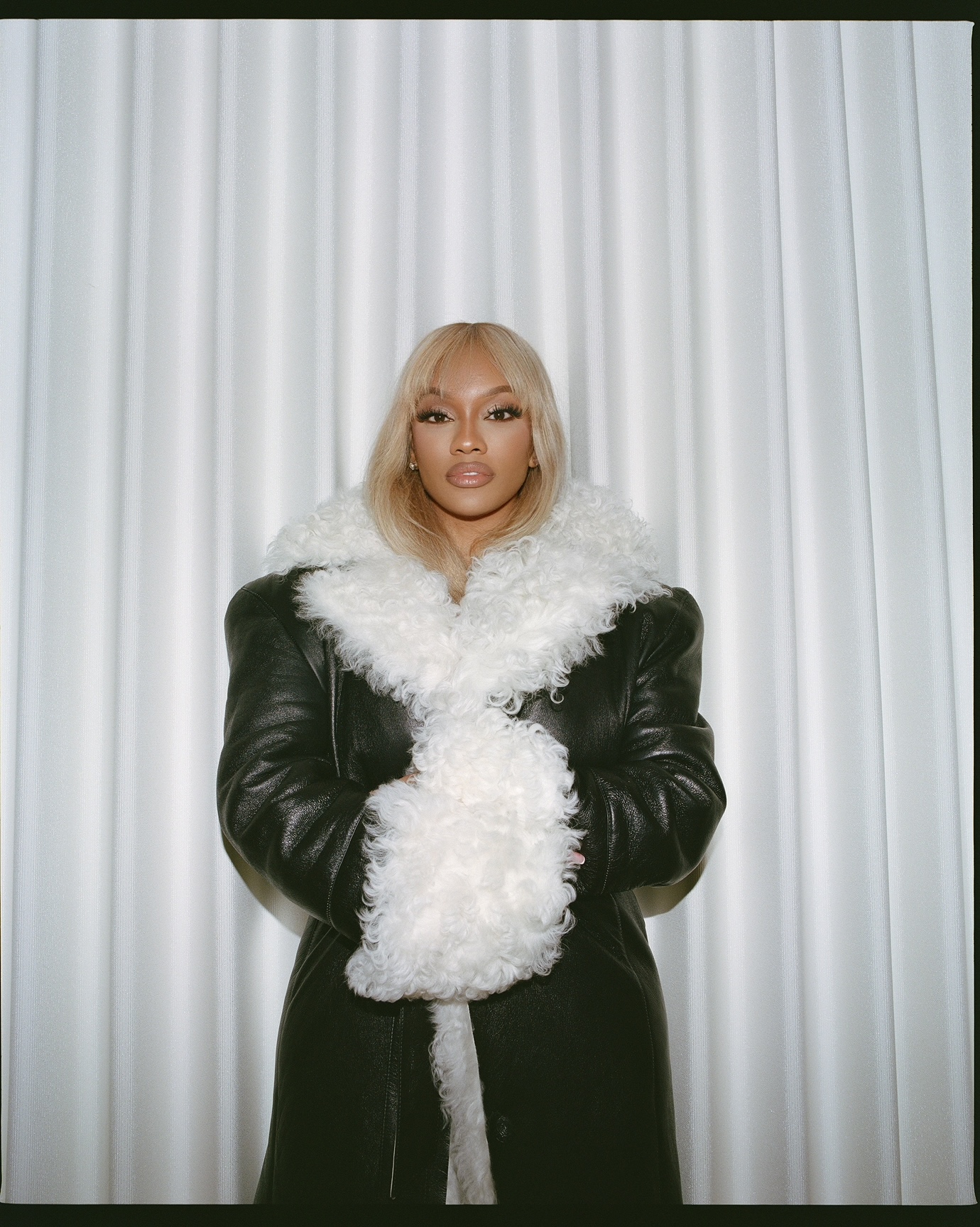
The term “standing on business” was first popularized in September of last year, thanks to notable influential figures like Internet comedian Druski and Drake, who featured the saying repeatedly in his song Daylight. It has since reached the forefront of our everyday vocabulary, becoming a defining symbol for those who take care of their responsibilities and obligations. While we’re able to identify icons like Rihanna and Beyoncé as perfect examples of the now-cultural mantra, other changemakers fit the bill just as much, like celebrity stylist and creative director Fatima B.
Fatima is the visionary behind some of your favorite rappers and artists including 21 Savage, Wiz Khalifa, Swizz Beatz, Metro Boomin, and the late Nipsey Hussle, crafting their images for a host of editorial and television moments — GQ and Saturday Night Live included. Although her entrance into fashion was marked by creating Nicki Minaj’s look for her debut album (who also happened to be her first client at just 21 years old), Fatima’s clientele blossomed into a host of male rappers, defeating industry stereotypes. “It kind of just happened naturally, especially since I work so closely in the hip-hop space,” she tells Essence GU. “The industry is male-dominated, and over time, I connected more with male artists.”

And though she’s crafted an impressive roster with jet-setting experiences that define her work days, the pioneering stylist credits her success to her cosmopolitan upbringing. Due to her parents’ work with the United Nations, Fatima grew up between New York and Japan where innovative street style and peerless fashion commanded her everyday experience from as early as six months old, directly setting the tone for her sartorial destiny.
“My love for fashion was ignited by my parents’ impeccable style,” she says. Their smooth flair was defined by a mesh of the two cities’ aesthetics marrying Japan’s authority on streetwear with New York’s masterful, yet bold approach to casual wear. Fatima’s parents also added a unique conservative twist to dressing, with her father’s penchant for sophisticated suits and clean silhouettes. “He wore a lot of high-end brands, and his focus on quality tailoring left a lasting impression on me. It made me realize how much detail goes into creating pieces that stand out not just for their design, but also craftsmanship.”

This fusion of culture helped foster Fatima’s stellar, yet effortless approach to styling, which is a healthy balance of resisting classification, staying authentic, and drawing inspiration from the artist. In 2012, she most notably dressed Khalifa in a Jimi Hendrix-inspired suit that included skin-tight striped trousers, a speckled fur coat, and a slew of gold jewelry for his O.N.I.F.C. album cover, much to the dismay of social media critics and rap fans. For fashion lovers, the ensemble played a pivotal role in the evolution of menswear from traditionalism to limitless expression.
Fast forward to more than a decade later, Fatima is still pushing cultural boundaries with even more remarkable work, like Swizz Beatz and Alicia Keys for the 2022 Met Gala. In collaboration with Ralph Lauren, the stylist brilliantly interpreted the “Gilded Glamour” theme with looks that praised the unmatched impact of the Empire State and amplified Black culture. “We crafted a look that paid homage to the Bronx by integrating iconic elements like a Yankee baseball jacket into a sophisticated tuxedo ensemble, which was not only a nod to Swizz Beatz’s roots but also a bold statement that merged the worlds of fashion and hip-hop seamlessly,” she recalls. “It transcended traditional fashion boundaries, creating a visual narrative that was both personal and universally impactful. It was a proud moment where we brought our vision to life on one of fashion’s biggest stages.”
While the creative director is certainly standing on business in the literal sense, Fatima is also making sure integrity and Blackness stay a part of the conversation; two concepts still lacking in fashion, which she describes as complex. “It’s a mix of nostalgia and innovation, but there’s also this challenge of defining what’s next,” she says. “I think we’re in a space where people are pushing boundaries, but we’re also seeing a lot of looks inspired by the past.”
She plans to accomplish this by exploring creative direction in full force, finishing the year strong with her top clients (21 Savage and Metro Boomin), and expanding as an entrepreneur at the helm of her brand. In just 11 years, Fatima’s enjoyed many noteworthy moments while crafting her light and redefining the Black American dream, and she’s just getting started. Through the industry’s ups and downs, Fatima remains committed to her mission: furthering Black legacy.

“As a Black woman, I’ve always embraced working within Black spaces, collaborating with Black artists, musicians, and designers,” Fatima states. “Hip-hop’s rise as the top genre highlights the richness of Black culture, and I want to ensure that my work celebrates and uplifts our stories.”
About the Author: Naomi Parris is a New York-based fashion & beauty writer obsessed with telling stories that merge fashion, beauty, and Black culture. With bylines in PS, Bustle, Elite Daily, and Fashion Times, she enjoys interviewing industry experts, covering Fashion Week, curating shopping edits, and testing new beauty products.